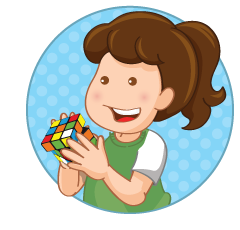|
If you are unable to view our Newsletter Issue 51, July 2018 on your mobile or desktop, click here to view them online.
|
| |
 |
|
Issue 51 | July 2018
|
|
Concerned that your baby/toddler motor development?
Are you afraid that your baby or toddler is not walking when he or she should be? Or maybe you have noticed that your toddler is having difficulty grasping objects. Gross motor delay affects movements such as the ability to crawl or walk while fine motor delay impacts the ability to grip and hold objects. Many children develop at a slower rate in building the fine motor muscles in their hands for a variety of reasons.
Boys tend to gain fine motor skills slower as compared to girls. Kids with low muscle tone or sensory issues may also have fine motor delays. Cerebral palsy and other disorders often include fine motor delays.

Here are some signs to look out for for such delays:
- Unable to reach for, grasp, or hold objects by 3 or 4 months old
- Unable to or does not roll over in either direction by 5 months
- Unable to sit up without help by 6 months
- Having difficulties to crawl or unable to stand while being supported by age 1
- Unable to walk or push a wheeled toy by 18 months
- Still walks on toes by age 2
|
 |
| Dynamics Toddlers Program (DTP) |
| Our program is designed to prepare the toddlers for playgroup setting and addresses the developmental needs of the child individually. |
| |
|
|
 |
 |
- Teach the pincer grasp. To help your child learn to pick up small items like Cheerios using her thumb and forefinger, stuff an empty baby-wipe container with scarves, and then let her try to pull them out. You can also give her toys that have dials, switches, and knobs.

- Embrace his filling and dumping obsession. Your toddler will likely load every toy possible into a plastic bin-only to spill it out and start over. While this activity may seem dull, it takes integrated muscle movements, concentration, and cognitive reasoning. Other ways to boost grip and finger strength: squeezing a wet sponge or looking for toys that are buried in sand.
- Let the stacking begin! Your child needs hand and wrist stability to place blocks with control. Large wooden ones are easiest for toddlers to manipulate. Once she gets the hang of it, you can switch to smaller building materials-but hold off on interlocking bricks until she’s at least 2.
- Facilitate creativity. Most kids can make a mark with a crayon at around 15 months and scribble by age 2. Big crayons are best for little hands, but you can also give him large pieces of chalk and finger-paints to express himself.
- Be patient with utensils. Have your child start using a fork and spoon at every meal. If she makes a mess or struggles, resist jumping in to help-let her try to figure it out on her own.
- Build on basic skills. As your toddler’s dexterity improves, encourage him to use both hands to do new tasks. Have him try threading big beads or rigatoni pasta with yarn. And play games like “The Itsy-Bitsy Spider” to teach him how to work his hands in tandem.
|
|
|
 |
|
Dynamics Therapy Centre for Kids is affiliated with:
|
We have a large team of speech and language therapists, occupational therapists,
educational therapists, psychologists, teachers & all supported by our administration team.
You can be assured that at Dynamics you only get the best, from the best!
Please contact for more information details at 6734 2634 | 6100 9235 or email inquiry@dynamics.com.sg |
|
Dynamics Therapy Centre for Kids Pte Ltd
583 Orchard Road Forum The Shopping Mall
Singapore 238884 |
|
| © Dynamics Therapy Centre for Kids Pte Ltd. All rights reserved. |
|
|







